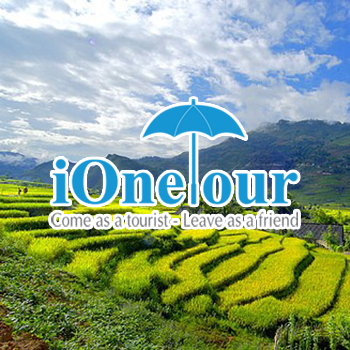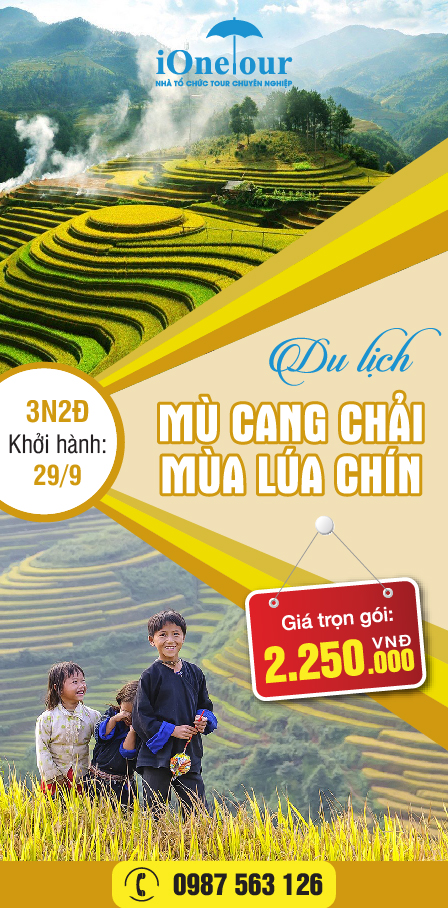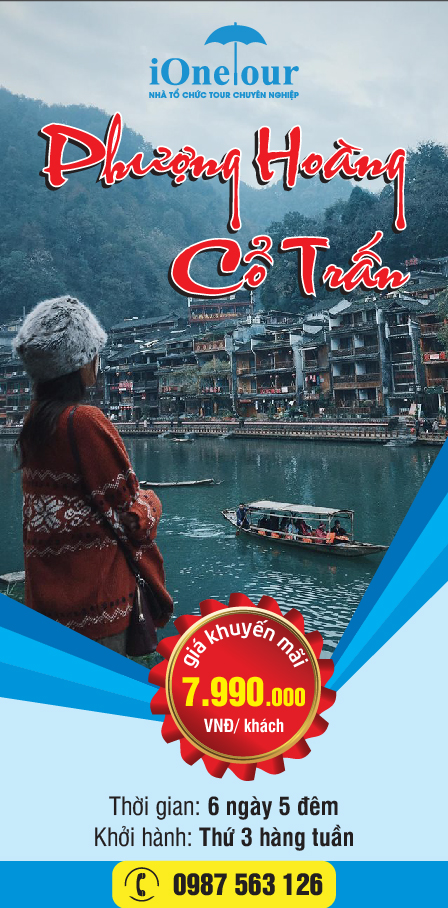Myanmar Travel Guide
Price from:
Itinerary
Republic of the Union of Myanmar
Population: 55.2 million
Capital City: Naypyidaw (Pop: 925.000)
People: Bamar 68%, Shan 9%, Karen 7%, Rakhine 4%, Chinese 3%, Indian 2%, Mon 2%, other 5%
Language: Myanmar (Bamar)
Currency: Kyat (MMK)
Time Zone: GMT + 6:30 Hours
International Dialing Code: +95
Myanmar is situated in South East Asia. Surrounded by India, Bangladesh, China, Thailand and Laos it is a country possessing many cultural, religious and natural treasures. As it has been closed off from the outside world it is surrounded by an air of mystery and adventure. In recent years the country has opened up and is rapidly developing itself. Many of its treasures such as the ancient temple ruins of Bagan; the Colonial history of Yangon; the unique local life style on floating houses in Inle Lake and the magnificent beaches along the Bay of Bengal are being re-discovered by travelers.
General Information
History
Myanmar’s amazingly friendly people, beautiful cultural and historical heritage is being discovered by more and more people. The country once known as “The Golden Land”, long closed off because of a military dictatorship, is now starting to show its shine.
The first people to settle in what is now known as Myanmar were the Mons. They brought Buddhism to the region, but it wasn’t long before many other peoples followed. Around the 9th century the Bamar people were the first to establish a Burmese Empire. The wealth of natural resources attracted many Ethnic groups from all over the region to create what is today Myanmar, a country rich in culture.
Not only did it attract attention regionally, the British were quick to move in and colonize Myanmar. Myanmar fought for its independence from foreign rule and attained it in 1948 led by the revolutionary Aung San, father of Aung San Sun Kyu, who was subsequently assassinated as a result of internal conflict and a military dictatorship was installed. After years of impoverishment and hardship Myanmar is finally showing signs of positive development and opening up to show the world just why this beautiful country has been coveted by so many.
Passport and visa
A passport with at least six months validity from the date of entry into Myanmar is required. We recommend you make a photocopy of your passport and keep it somewhere separate, or scan your passport and keep the scan in an accessible email account.
A visa is required for all nationalities and should be arranged prior to arrival in Myanmar. A valid visa can be issued by relevant Myanmar Embassies. A Tourist Visa may take up to 3 days to obtain and is valid for 28 Days. The fee is between US$25 – 40 depending on how fast the visa is issued (same day service being most expensive). A valid passport + copy; completed visa application form and two passport-sized photographs are also required. A copy of additional travel documents may be requested.
Currency
The official currency is Kyat. However, US dollars are also widely accepted and on some occasions yield slightly lower prices. It is recommended that you always carry cash in small notes with you. These notes should be clean, and free from rips and tears. USD especially must be newly printed and in pristine condition. USD banknotes with even just a crease may sometimes not be accepted.
ATMs that accepted VISA and Mastercard are now widely available in Yangon and Mandalay. They distribute Kyat. There are almost no ATMs outside of the major cities, so precautions should be taken. Note that many of the ATMs are not working and it may take some time to find one that dispenses banknotes.
Phones and Internet Service
Myanmar International postal services mostly route through Singapore, Bangkok and Seoul and deliver word wide. DHL is also available for express deliveries.
Telephone connections to the rest of the world are widely available but can be expensive. International roaming of foreign mobile phones does not work in Myanmar. Local sim cards are available to foreigners, but are prohibitively expensive (official price: USD 250).
Internet access is available in most major tourist places such as hotels and restaurants. Connections are relatively slow for western standards and are unstable from time to time.
Transportation
Yangon and Mandalay
Taxi’s are the main form of transportation in the major cities. Fares within city limits range from K1000 – 4000. There are no metered taxi’s in Myanmar so a price needs to be agreed upon with the driver before getting on the taxi.
Motorbike taxis
Travel by motorbike in Myanmar is not safe and under no circumstances is this promoted or recommended by Buffalo Tours. Please note that travel by motorbike is not usually covered by insurance. Please check the fine print of your travel insurance policy to be sure of your cover.
Weather
Myanmar has a tropical Monsoon climate with 3 seasons, hot, rainy and cool. The coastal regions have an average temperature of 32 °C and northern region, considered the coolest an average temperature of 21 °C. The central areas are the driest, while the coastal areas receive most rain during the monsoon season.
Mar – May – Hot Season; hot, humid
Jun – Sep – Rainy Season; cloudy, humid
Oct – Feb – Cool Season; less rainy, mild
Please note: The weather can be unpredictable and it may be a good idea to carry an umbrella or raincoat with you. You can purchase raincoats cheaply from supermarkets and general stores.
Health and Safety
Health and well-being
The general standard of healthcare in Myanmar is poor. Sanitation is lacking as well as proper medical facilities especially in rural areas. Pharmacies and hospitals may not be available during parts of your travel and we advice to bring a full supply of any prescription medicine you are required to take before starting your holiday in Myanmar. We strongly urge not to undergo any invasive treatments in Myanmar, for more serious injuries treatment in neighboring Thailand may be necessary. Each traveler is responsible for his or her own health. First and foremost, make sure that you have travel insurance for your trip. You should also consult your doctor or local travel clinic for the latest information and advice on travelling to Myanmar before departure.
Please note: If you have a medical condition or allergy which requires particular attention, carry a doctor’s letter with you that describes the nature of the condition and treatment needed. We also recommend you pack a medical kit, including paracetamol and a diarrhea remedy.
Vaccinations
There are many vaccinations needed when travelling to this part of the world. It is important you ensure you have adequate protection against disease. Book an appointment with your doctor or travel clinic, no less than two months before your departure.
Travel insurance (compulsory)
Buffalo Tours does everything possible to ensure a safe and enjoyable trip. However, travel inevitably involves some risk and this should be recognized by holiday-makers. Travel insurance is a cost effective way of protecting yourself and your equipment should any problems occur such as cancelled trips, delays, medical emergencies, baggage loss or damage. It also gives you peace of mind. Please also ensure your travel insurance covers all activities planned on your trip.
Culture & Customs
Etiquette and cultural differences
Part of traveling to another part of the world is to experience differences in culture and customs. Trying to adapt to local customs is part of being a good guest. The Myanmar people are typically easy going and forgiving when travelers are not intimately familiar with their customs.
Pay attention to:
-
Try not to show annoyance or anger by shouting or becoming abusive. It is considered extremely impolite and is unlikely to achieve a positive outcome. In Myanmar people always try to be considerate towards others feelings before taking an action and will always try to avoid making others ‘lose face’.
-
Avoid touching other peoples heads and feet. Also do not point with your feet to items or people. It is considered extremely rude.
-
Public displays of affection between friends of the same gender are not considered strange, however lovers do not generally show their affections in public.
-
It is customary to take of your shoes and socks before entering peoples homes, temples and various other buildings. You are usually cued by the many shoes standing in front of the door.
-
Myanmar people normally greet eachother with “where are you going”, however the more formal “ming galabar” is widely used by foreigners and appreciated
Temple visit etiquette
Myanmar is a predominantly Buddhist country and Foreigners are always welcome in temples and Monasteries. However, it is important that a few simple rules of etiquette are followed:
-
Dress appropriately and act with the utmost respect when visiting Zedi (pagodas) or monasteries.
-
Do not wear shorts or tank tops and make sure your shoulders and knees are covered.
-
Take of your hat and leave your shoes at the entrance of any temple or monastery grounds.
-
If you sit down in front of the dais (the platform on which the Buddha’s are placed), sit with your feet to the side rather than in the lotus position.
-
Never point your finger or the soles of your feet towards a person or a figure of the Buddha.
-
A woman may accept something from a monk but should never touch a monk.
-
Show respect and turn off mobile phones, remove headphones, lower your voice and avoid in appropriate conversation.
Food and drink
It is not advisable to drink tap water in Myanmar. Bottled water is cheap and widely available.
Myanmar food is a mixture of Indian and Chinese cuisine. Local curries and soups are also a staple. Most meals are based around rice. The national dish is Mohinga, rice vermicelli in fish broth with onion, garlic and lime, served with fish cakes and fritters.
Public holidays
There are many public holidays most of which are related to religious festivals. For each of the 12 months there is at least one festival observed. The biggest festival is Thingyan and precedes the Myanmar New Year. The 5 day celebration takes place during the middle of April according to the lunar calendar. Water dousing and throwing may be observed during the first 4 days of the festival.
Helpful tips
Donations and gift giving
Myanmar is a very poor country with little in the way of social services and you are likely to see poverty. Please read the following advice about donations and gift giving.
-
Do not give money to people begging, especially children. This reinforces the belief that begging is an acceptable way to make a living. If children make money from begging, their parents are less likely to send them to school. Children working on the streets are also vulnerable to abuse.
-
Giving money and goods to beggars can accentuate an unequal relationship between locals and visitors, with tourists being seen as purely money givers.
-
Avoid giving money to people that look like monks, it is a practice frowned upon by most Myanmar people and is considered to go against their Buddhist principles.
-
Do not feel that you necessarily have to give material things. Sometimes, giving your friendship, time and interest to locals can be the best gift of all. For more information go to www.thinkchildsafe.org
Tipping
While tipping is a common practice in Asia it is not something that is generally done in Myanmar. Waiters, porters, drivers and guides will appreciate a tip for their work. Small gifts are also appreciated. Following Myanmar customs your gifts will generally be refused at first, this is out of politeness. In small restaurants and food stands or by taxi drivers tips are never expected. Your bus driver and guide may expect a tip if their service was satisfactory.
As a guideline:
Tour Guide 1 – 2 USD (per person per day)
Driver 1 – 1.5 USD (per person per day)
Porter K 1.000
Restaurants / Bars 10% of the bill
Price guide
Restaurants
-
Myanmar food: from USD 5
-
Western food: from USD 10
Drinks
-
Soft drinks: USD 1
-
Local beer: USD 1
-
Bottled water: USD 0.40
-
Juice: USD 1.50
Other Items
-
SIM card: USD 250
-
Mobile phone: USD 25 – 30
-
Books: USD 10 – 15
-
DVDs: USD 4
Useful websites:
The UK Foreign and Commonwealth Office advice on travel to Myanmar:
https://www.gov.uk/foreign-travel-advice/burma
The official tourism website for Myanmar:
http://www.myanmartourism.org/
Pre-departure checklist
-
Travel insurance
-
Passport with at least six months validity from date of entry
-
Photocopy of passport
-
Visa
-
Vaccinations
-
Foreign currency (US$) and/or ATM card
-
All relevant tickets
-
Reconfirmed flights
-
Lightweight clothing and slippers
-
Raincoat and / or umbrella
-
Long-sleeved shirts and trousers (recommended for evenings)
-
Electric adaptor: 220V, 50Hz; 2 pin plugs
-
A small bag/backpack for day and overnight trips
-
Appropriate shoes for trekking, cycling and walking
-
Insect repellent
-
Sunscreen
-
Medication/first aid kit
Please note: Domestic airlines impose baggage weight restrictions of around 20kg maximum, so travel lightly where possible.
Price
Policy
Hỗ trợ trực tuyến

 English
English  Vietnamese
Vietnamese 














